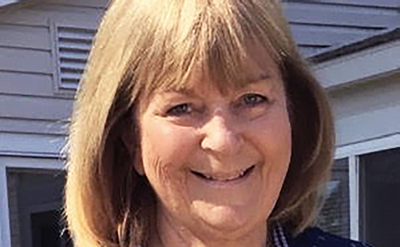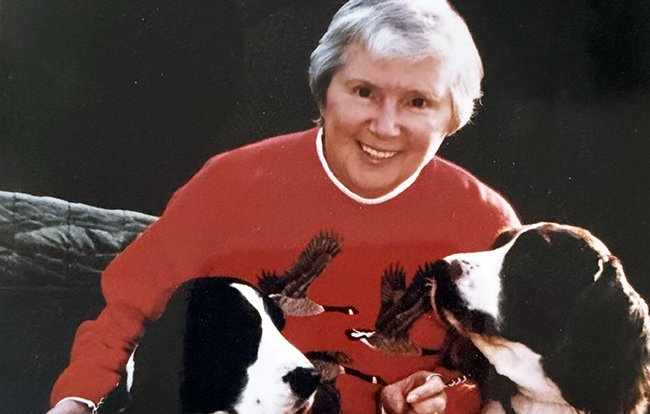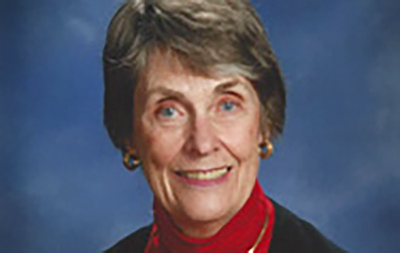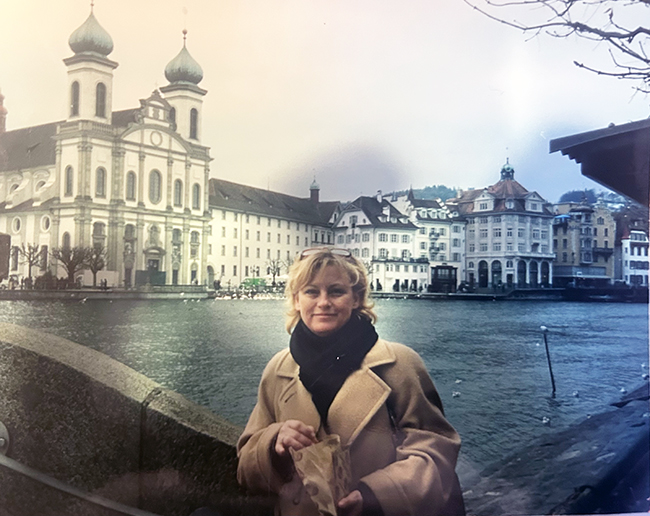Reverend Donald Deer
Musician, educator, missionary, scholar
The Reverend Dr. Donald Spencer Deer died at Pilgrim Place in Claremont on January 5, 2013, just 3 months and a day after the death of his beloved wife of 57 years, Barbara. He was 83.
Rev. Deer was born at home in Terre Haute, Indiana on October 24, 1929, the third and youngest child of Roy Burton Deer and Emilie Spencer Deer. He adored his bubbly, creative mother and revered his upright father, whose integrity and example Rev. Deer cited and strove to follow to the end of his 83 years.
The family moved from Indiana to Michigan, Pennsylvania and New Jersey, where Rev. Deer’s father was first an American Baptist pastor and later an executive in the statewide American Baptist organizations.
At the age of 11, young Donald was baptized by his father in Narberth, Pennsylvania; the church had always been and continued to be the center of the family’s activities. At about the same age, with money he had saved from his allowance for 2 years, he paid for half the cost of a full-sized cello that was already then over 100 years old. The cello, which he named Bessie, stayed with him until he died.
In high school, Rev. Deer was inspired by a deeply committed French teacher to love and study the French language. He first thought he would be a French teacher himself, then seriously considered a life as a professional cellist. Though Rev. Deer finally dedicated himself to church work, he kept up his commitment to the cello and his love of languages, including French, all his life.
Growing up, Rev. Deer was especially close to his sister, Margaret “Peg” Rodgers, who was 3 years older. They played together as children and later, when she was home from college for the summer and in danger of feeling lonely, he would arrange for double dates and invite her to various events.
“He was 6-foot-5—my big little brother,” Ms. Rodgers recalled fondly. “He was a lot of fun.”
The siblings remained close, even when separated by continents, largely because Rev. Deer was such a faithful letter-writer. “He was a wonderful brother,” she said. “I could count on him, and I think he could count on me.”
At Denison University, where his father and his older brother Gordon had gone before him, Rev. Deer was proud to be a member of the American Commons Club, which accepted members of all races and creeds and was one of the only interracial fraternities at the time. He was also enthusiastically involved in Democratic Party politics.
“He was absolutely fun, absolutely intelligent, absolutely outgoing and absolutely supportive of diversity—in particular at that time of interracial diversity,” recalled fellow American Commons Club member Jim Toy.
Being a double major in French and music, Mr. Toy had many interests in common with Rev. Deer. He would often join with him and other fraternity brothers in a quartet, playing compositions by classical music masters such as Mozart.
“He was most talented and most skilled,” Mr. Toy said. “And [for me] as a struggling musician, he was a model of intonation and rhythmic accuracy and creative interpretation,” Mr. Toy said.
Rev. Deer planned to become a minister and went on to Colgate Rochester Divinity School (CRDS), where his father and older brother had also gone before him, but while there he became aware of the possibilities of mission work and felt called to become a missionary.
After graduation from CRDS in 1955, he married Barbara Sloat, and they were commissioned as missionaries to what was then the Belgian Congo. In Congo, he taught school, learned Kikongo and Kituba and helped to organize the teaching of Kituba (one of Congo’s 4 most widely spoken languages, also called Kikongo ya leta) to other missionaries. He also worked on Bible translation and taught New Testament at the seminary level.
Ruth E.M. Titi Manyaka met Rev. and Mrs. Deer in 1958, when she was 13. She recalled Rev. Deer as a lively and interesting teacher. He was also an exacting disciplinarian who would not tolerate any cheating in his classes, she said. During his exams, students were expected to look down at their papers or up at the ceiling to think, never to the right or left.
“We’d leave exams with stiff necks,” she joked.
Once, when she went to spend her Sunday at the Deer’s house, Rev. Deer had been grading a recent history exam. He told young Ruth that 2 of his students—who had been sitting side-by-side—had given the same wrong answer, word for word. When he asked her what she thought about that, she said it was hard to believe that, with such strict supervision, any student would be crazy enough to risk getting a zero-grade for cheating.
“He said, ‘Do you know what? Those students were Musunu [that’s me] and Muzingu [my neighbor],” Ms. Titi Manyaka said. “I looked up straight into his eyes and said, ‘Tata Deer, I did not cheat.’”
She was relieved when the reverend said he believed her. Rev. Deer’s emphasis on integrity was influential for Ms. Titi Manyaka, reinforcing what her parents had taught her. She would later insist on a similar honesty, both as a parent and as a biology teacher. Rev. Deer’s rigor, however, did not always win him friends.
“This is one man who never left anyone indifferent. Those who had nothing to hide loved him,” Ms. Titi Manyaka said. “Others who found him too rigid as a professor disliked him. I personally loved that couple, Donald and Barbara Deer, very dearly and will miss them.”
One of the great professional achievements of Rev. Deer’s life was the translation of the New Testament into Kituba, called Kuwakana ya mpa, on which he worked with a team of Congolese and American translators for 10 years.
“Oh, yes, I have the New Testament that Rev. Deer translated,” Ms. Titi Manyaka said. “My dream was to catch just one mistake in his translation and proudly tell him about it, and he knew about it because I told him. But I never found any.”
When that translation was finished in 1971, Rev. Deer took his family to France for 2 years so that he could earn a doctorate in New Testament in Strasbourg. They returned to Congo in 1973, where Rev. Deer was then a New Testament professor for many years.
He was committed to providing access to readable and accurate translations of the Bible and contributed to La Bonne Nouvelle en français courant and to the Good News Bible with comments and edits over the decades, and advocated for and helped to distribute the Good News Bible until the end of his life. A long-running project on How We Got the Bible (formation, canon, text and versions) never made it into book form but after presenting it as a workshop in churches across the United States, Rev. Deer made it available as a 100-page outline that many laypeople have found useful and interesting. In recent years, he was proud to translate volume 2 of a commentary series on the Gospel of Luke by New Testament scholar François Bovon, which will be published in April by Fortress Press.
Rev. Deer was known for his punctiliousness and punctuality, his height, his humor, his cello, his lusty bass voice and his languages. Liberal in his politics and his theology and unbending on points of principle, he often found himself at odds with his colleagues, and yet found lasting connections with some missionary, seminary and translation colleagues, with musicians from all walks of life with whom he played chamber music, and with treasured former students.
After leaving Congo, Rev. Deer taught New Testament briefly at the American Baptist Seminary of the West in Berkeley, California, and then for many happy years at Virginia Union University in Richmond, Virginia.
In 1998, he retired to Pilgrim Place where for years, with Mrs. Deer’s help, he was able to continue writing, editing and translating; studying the New Testament; playing the cello in private and public; functioning as an unofficial computer consultant for neighbors; making jokes and cracking puns; enjoying connections with old and new friends; and delighting in communication with friends and family around the world.
In later years, his Parkinson’s disease greatly affected his speech, sadly limiting his ability to connect with people the way he wanted to. He leaned heavily on his wife to interpret for him. After her death last October, he gradually became weaker, missing her love and devoted help, and finally succumbed to pneumonia and his Parkinson’s.
“Donald strove to improve himself and live up to his ideals and principles every day of his life, but he always rested in his faith in his loving and forgiving God,” family shared.
Rev. Deer was preceded in death by his wife, Barbara Deer, and by his older brother, Gordon Deer.
He is survived by his 2 daughters, Ruthy DeHolton and Marie Deer; by his sister, Margaret “Peg” Rodgers of Ithaca, New York; by 4 grandchildren; by a son-in-law, and by many nieces and nephews. Rev. Deer was a member of the First Baptist Church of Rochester, New York.
A memorial service for Rev. Deer will be held on Friday, March 15 at 3:30 p.m. in Decker Hall at Pilgrim Place, located at 665 Avery Rd., Claremont. A reception will follow, held across the street in the Napier Common Room.
In lieu of flowers, the family suggests that memorial donations be sent in Donald Deer’s name to the Resident Health and Support Fund at Pilgrim Place, Attn. Susan Maire, 625 Mayflower Rd., Claremont, CA 91711.








0 Comments